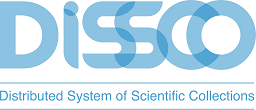Please use this identifier to cite or link to this item:
http://dx.doi.org/10.34960/102| Title: | Digitisation of private collections |
| Authors: | Willemse, Luc Runnel, Veljo Saarenmaa, Hannu Casino, Ana Gödderz, Karsten |
| Keywords: | private collections;digitisation;stakeholders;collection ownership;management tool,;motivation;legal issues;volunteers;citizen science |
| Publication Date: | 2020 |
| Publisher: | ICEDIG |
| Citation: | Willemse L, Runnel V, Saarenmaa H, Casino A, Gödderz K (2020) Digitisation of private collections. Research Ideas and Outcomes 6: e57767. https://doi.org/10.3897/rio.6.e57767 |
| Abstract: | Results are presented of a study investigating solutions and procedures to incorporate private natural history collections into the international collections data infrastructure. Results are based on pilot projects carried out in three European countries aimed at approaches on how to best motivate and equip citizen collectors for digitisation: 1) In Estonia, the approach was to outline tools for registering, digitising and publishing private collection data in the biodiversity data management system PlutoF. 2) In Finland, the functionality of FinBIF, a portal offering a popular Notebook Service for citizens to store observations has been expanded to include collection specimens related to a field gathering event. 3) In the Netherlands private collection owners were approached directly and asked to start digitising their collection using dedicated software, either by themselves or with the help of volunteers who were recruited specifically for this task. In addition to management tools, pilots also looked at motivation, persons undertaking the work, scope, planning, specific knowledge or skills required and the platform for online publication. Future ownership, legality of specimens residing in private collections and the use of unique identifiers are underexposed aspects effecting digitisation. Besides streamlining the overall process of digitising private collections and dealing with local, national or international challenges, developing a communication strategy is crucial inorder to effectively distribute information and keep private collection owners aware of ongoing developments. Besides collection owners other stakeholders were identified and for each of them a roadmap is outlined aimed at further streamlining the data from private collections into the international infrastructure. In conclusion recommendations are presented based on challenges encountered during this task that are considered important to really make significant progress towards the overall accessibility of data stored in privately held natural history collections |
| URI: | https://know.dissco.eu/handle/item/238 |
| Appears in the Folders: | ICEDIG Project Outcomes |
Files in This Item:
| File | Description | Size | Format | |
|---|---|---|---|---|
| RIO_article_57767.pdf | 653.29 kB | Adobe PDF | View/Open |
This item is licensed under a Creative Commons License
